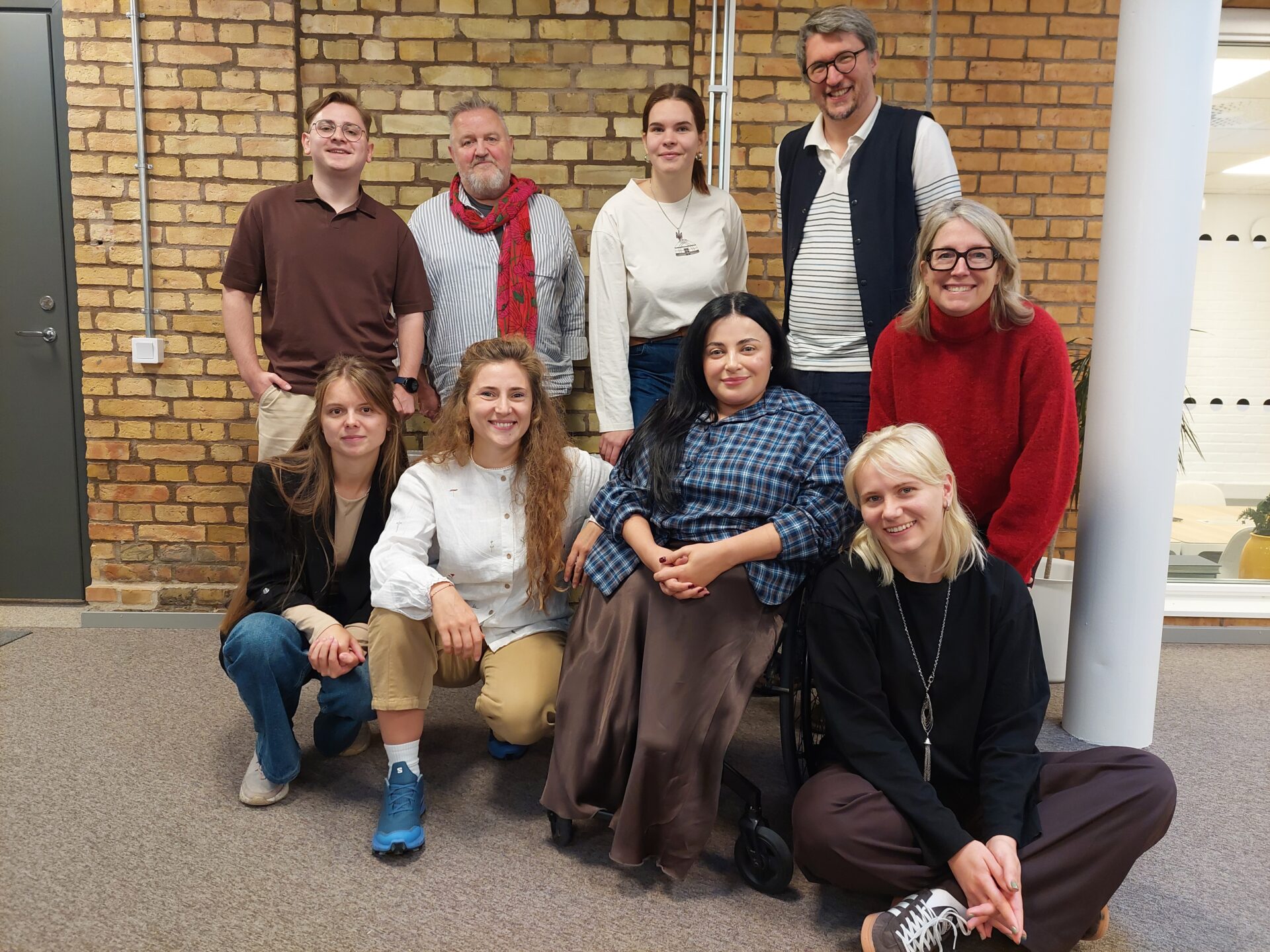“Do Not Take Democracy for Granted” – Ukrainian Organisations Visited IM in Lund

Yesterday, IM’s head office in Lund welcomed guests from afar. Representatives of the Ukrainian organisations Zahyst and Stan came to share insights into their work and to talk about life lived in the shadow of war. They also brought a stark warning for the Swedish public.
Six representatives from Zahyst and Stan are currently touring Sweden, Norway and Denmark to meet with partners. Yesterday it was Lund’s turn.
“We are two separate organisations, but together we are stronger. We share the same values and goals, but have different approaches and audiences. By pooling our strengths and expertise, we can raise a louder voice, reach more people – and make a bigger difference,” says Mariia Nikitina of Zahyst.
The colleagues jokingly refer to themselves as “sister organisations” or even “best friend organisations”. Their cooperation has only become more vital since Russia’s full-scale invasion.
Zahyst works for a more inclusive society, with a particular focus on people with disabilities. Mariia Nikitina points out that while the official figure stands at three million people with disabilities in Ukraine, the real number may be closer to five million – many of them injured in the war.
Stan is a youth organisation that supports young activists and volunteers. It champions democracy, peace and human rights, while also providing support to veterans – many of them young – returning from the front with trauma.
“We share the same outlook on young people, people with disabilities, LGBTQI+ communities, and society as a whole. Together we can reach more people and have greater impact,” says Serhii Scherban of Zahyst.
From Emergency Relief to Long-Term Change
When the war broke out, both organisations shifted their efforts to distributing supplies, arranging temporary accommodation and receiving internally displaced people. Today, the focus has shifted towards long-term change. Zahyst, for instance, works with IM’s partner MetaLab to make housing for displaced people accessible to all. Stan, meanwhile, nurtures young local leaders who can drive change long after the war has ended.
“Many funders only provide money for short projects. That creates no continuity – we are forced to start over time and again. We need your long-term support,” says Mariia Nikitina.
An Emotional Encounter
During the discussion, the proximity of the war for the visitors became painfully clear. Several of their accounts moved the room to tears. Anastasia Palsaska recalls:
“I remember the first day of the invasion. Should I stay or flee? At first I stayed, but when the fighting drew closer, I fled to Belgium with my daughter. But after a while I felt: I must return, I must help. This is not just my job – it is my passion, my life.”
That commitment resonates throughout the group – despite the risks and their own vulnerability.
A Warning to Sweden
The visit to Lund was not only about sharing their work, but also about issuing a warning to Sweden.
“We know what it means to live in an occupied country without freedom. We understand the value of our liberty,” says Kateryna Shulakova from Stan.
Serhii Scherban adds:
“Democracy is the only way to survive, both as a country and as a society. In a democracy, we can choose our future. We must show the rest of the world that we are strong – this is about Europe too. Swedes, do not take democracy for granted!”
Kateryna stresses that the threat is far from remote:
“We shut our eyes for too long. By the time we realised what Russia was after, it was too late. Sweden must open its eyes. When we arrived at the airport, it was closed because of drone strikes. A hybrid war is already under way.”
“When We Work Together, We Are Stronger”
Anders Berg, Head of Global Operations at IM, echoed the emphasis on cooperation:
“When we work together, we are stronger. There is no competition, only shared goals.”
Perhaps the clearest message the Ukrainian visitors left behind was the power of partnership. They came not only to share their experiences, but also to remind us that the struggle for democracy and freedom is not a distant one – it is a struggle that matters here in Sweden too.
In the photo above:
Top row from left: Serhii Scherban, Anders Berg, Kateryna Shulakova, Andreas Ulfsax, Gabriella Fredriksson
Bottom row from left: Anastasia Pasalska, Mariia Kelii, Mariia Nikitina, Lilia Ivoniak
Text and photo: Malin Kihlström
By: Malin Kihlström